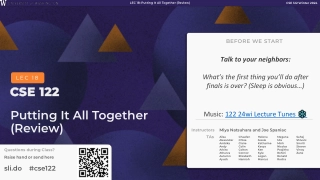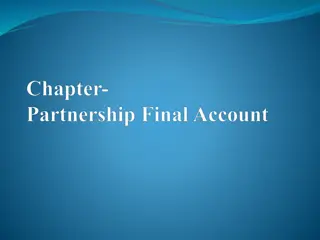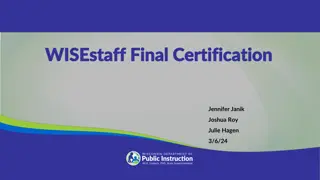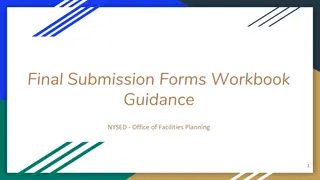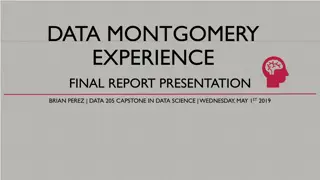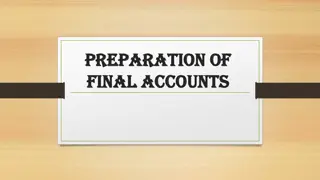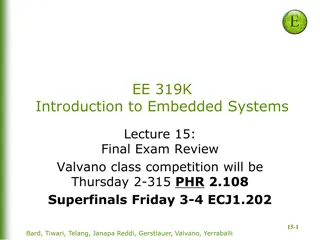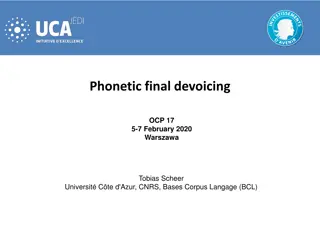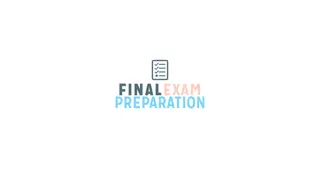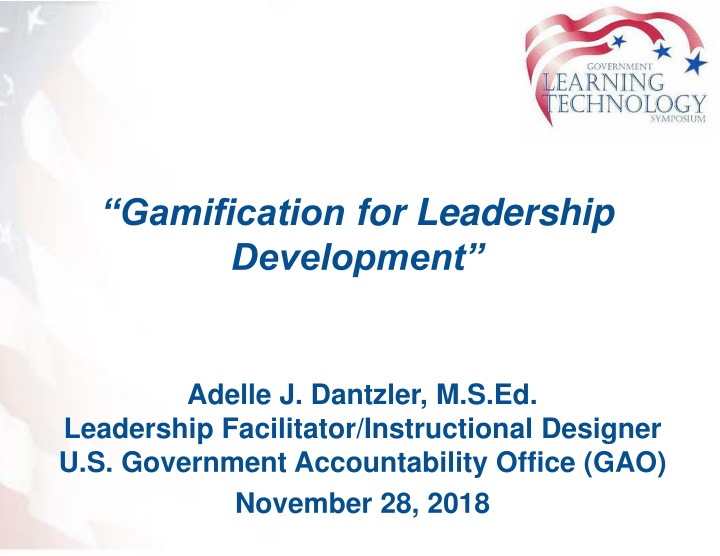
Gamification for Leadership Development with Adelle J. Dantzler
Explore the use of gamification in leadership development as presented by Adelle J. Dantzler, a Leadership Facilitator/Instructional Designer at the U.S. Government Accountability Office. Discover key elements, steps, and strategies for integrating gamification into leadership training programs.
Download Presentation

Please find below an Image/Link to download the presentation.
The content on the website is provided AS IS for your information and personal use only. It may not be sold, licensed, or shared on other websites without obtaining consent from the author. If you encounter any issues during the download, it is possible that the publisher has removed the file from their server.
You are allowed to download the files provided on this website for personal or commercial use, subject to the condition that they are used lawfully. All files are the property of their respective owners.
The content on the website is provided AS IS for your information and personal use only. It may not be sold, licensed, or shared on other websites without obtaining consent from the author.
E N D
Presentation Transcript
Gamification for Leadership Development Adelle J. Dantzler, M.S.Ed. Leadership Facilitator/Instructional Designer U.S. Government Accountability Office (GAO) November 28, 2018
Agenda Background Gamification Terms Development steps Step 1 Instruction & Game Play Elements Desired Behavior Player Persona Step 2 High Interactivity Step 3 Compelling Story Step 4 Test and Re-test Q&A
Background COTS webinars from vendor catalog (slightly adapted later) Agency competency model Analyzed definition of each competency Derived webinar topics to demonstrate competency Rated and ranked webinar topics Roll-out schedule Audience and performance analysis Webinars content ties abstract principles to leadership behaviors through scenarios, reflection, action planning One of 10 webinars designed in one year Page 3
Virtual Leadership Curriculum 19 webinars 2 using gamification Goal: Relevance and Usefulness Pre-course resource exploration and scenarios Webinars to: review scores, delve into resources for rationale, discuss application of principles to situations, action plan Page 4
Terms Game Game play or game mechanic elements Gamification Page 5
Resources Daul S. (2014) Game Design for Learning. Alexandria, VA: Association for Talent Development Kapp, K.M., Blair L., & Mesch, R. (2014)The Gamification of Learning and Instruction Fieldbook: Ideas into Practice. San Francisco, CA: John Wiley & Sons, Inc. Kapp, K.M., (2012) The Gamification of Learning and Instruction: Game-Based Methods and Strategies for Training and Education. San Francisco, CA:Pfeiffer
Poll What is the right reason for gamification? (select all that apply) A. Creating interactivity in learning delivery B. Overcoming disengagement C. Because gamification is a hot topic right now D. Providing opportunities for deep thought and reflection E. Positively change behavior F. Authentic practice
1st Step Design instruction and game play elements together Player Persona motivation of learner; characteristics and desired behavior (audience analysis) Behavior Change use accountability principles in work situations
Behavior Change Current behavior Desired behavior Gap - Be specific Write it down Test understanding with others. . . Reflected in objectives (more than learning; performance- based) Page 9
Relevance & Application? How do you make gamification relevant to your learners? How do you know gamification is addressing the learning and performance needs of leaders?
1st Step - What I did Player Persona Conducted audience analysis common accountability situations Reviewed project and process task processes Reviewed performance competency models and standards for exceptional behavior Behavior Change Research of accountability principles Connect accountability principles to desired behavior in agency work Page 11
Activity: Player Persona Think about the right reasons discussed earlier for gamification (Creating interactivity in learning delivery, overcoming disengagement, providing opportunities for deep thought and reflection, positively change behavior, authentic practice) 1. Describe the player persona including motivation, characteristics, and desired behavior of . . . (volunteer suggestion of leader opportunity for learning) 2. What game play elements (e.g., avatar, spells, challenges, etc.) could you use with this learner?
2nd Step High Interactivity Activity(ies) to reinforce & fully remember, comprehend, analyze, evaluate, apply Interact with content and each other game play elements Challenge: Applying the principles in real-life situations - Opening doors! Reward: Correctly using principles Obtaining keys! Content review
Activity: Learning & Interaction Types of Learning Remember Suggested Interactivity Ex. Trivia, Matching, etc. Comprehend Analyze Evaluate Apply Page 14
Step 2 What I Did Review of accountability resources and multiple choice, open- ended questions or chat layouts to promote reflection and application of key points Practice review of key points or concepts as group No lecture, just group review to discuss how to answer key points Page 15
3rd Step Compelling Story Create story to illustrate or simulate agency situations Use actual challenges in workplace Review work documents Conduct interviews with expert performers
Activity: How would we gather information to serve as the basis for a story illustration or simulation? What story could we use to motivate the previously described learner? How could we adapt the story to incorporate game play elements? Page 17
3rd Step What I Did Doors are actual agency situations Top 10 challenges facing learner Study of process and policy documents to link to accountability concepts to demonstrate through tasks/projects Page 18
4th Step Test and Re-Test Functional testing One-on-one interviews Observations
4th Step What I Did Two pilots (June and September) Review of feedback comments Observer comments Cold reviewer Encourage of email and phone call feedback after event Lessons learned Adaptation for 2 different learners in agency Page 20
Q & A Adelle J. Dantzler, M.S.Ed. Leadership Facilitator/Instructional Designer GAO Leadership & Executive Development Program (202)512-4033 Dantzlera@gao.gov Connect with me through LinkedIn!

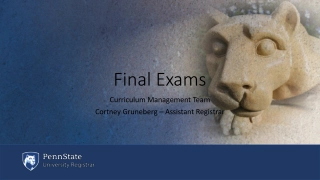
![READ⚡[PDF]✔ Yup I'm Dead...Now What? The Deluxe Edition: A Guide to My Life Info](/thumb/20463/read-pdf-yup-i-m-dead-now-what-the-deluxe-edition-a-guide-to-my-life-info.jpg)

